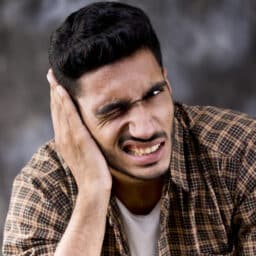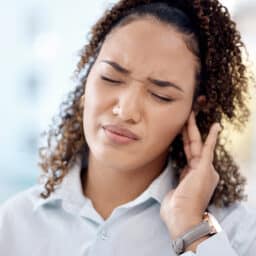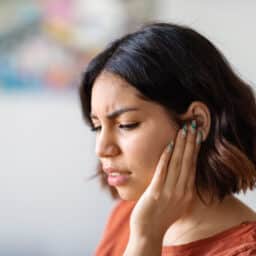What Does Tinnitus Sound Like?

No two people experience tinnitus in exactly the same way, which is significant, considering 25 million people suffer from it. It is regularly described as “ears ringing,” but that’s not the only sound tinnitus can manifest as. Let’s discuss what tinnitus can sound like and why it can vary so widely. Why Tinnitus Sounds…
What’s The Difference Between Tinnitus and Hyperacusis?

Tinnitus and hyperacusis are frustrating, sometimes debilitating conditions that negatively affect quality of life. Both conditions involve the perception of sound in the ear, are usually caused by another underlying cause and are treatable. Since both tinnitus and hyperacusis pertain to background noise and your ear’s perception of the background noise, the two conditions might…
How Does Sound Therapy for Tinnitus Work?

Tinnitus is both frustrating and common. Roughly 20% of the American adult population—about 50 million people—has experienced tinnitus. Tinnitus is characterized by a sound in the head that has no external source. This can be a ringing, buzzing, whooshing or roaring sound, and since there is no external source, your brain gets confused about where…
Tinnitus and Mental Health: Coping with the Emotional Impact

Tinnitus, characterized by a persistent ringing or buzzing sound in the ears without an external source, can lead to anxiety, depression and other physical symptoms. Adopting effective coping strategies for tinnitus can help improve quality of life. Symptoms of Tinnitus Tinnitus is often linked to hearing loss, and living with its symptoms can be overwhelming….
Are There Apps for Tinnitus Management?

Approximately 10% of Americans have experienced tinnitus lasting five minutes or longer in the past year. Tinnitus is the presence of ringing or buzzing in one or both ears when no sound is present. It can cause stress, negatively impact quality of life and often leaves those with chronic tinnitus searching for relief. Although there…
How Sound Enrichment Therapy Can Help Manage Tinnitus

Living with tinnitus is a frequent challenge for approximately 25 million U.S. adults. The persistent ringing, buzzing or clicking sounds can disrupt daily life, affecting sleep, concentration and overall well-being. While there is no known cure for tinnitus, several symptom management options may provide relief. One effective approach to managing tinnitus is sound enrichment therapy….
What To Know About Pulsatile Tinnitus

Tinnitus is a ringing or buzzing noise in the ears that cannot be heard from the outside. If you hear a whooshing, pulsing or thumping sound in your ears outside of strenuous exercise, you may have a rare form of tinnitus. Pulsatile tinnitus presents in approximately 10% of tinnitus patients and is often described as…
Can Migraines Worsen Tinnitus Symptoms?

Comorbidity refers to the simultaneous occurrence of two or more diseases or conditions in one person. While two or more conditions may frequently present together, they are not always causes for each other. The simultaneous presence of migraines and tinnitus is one example of a comorbidity. While migraines may not directly cause tinnitus, the two…
Is There a Link Between Tinnitus and Blood Pressure Medication?

Tinnitus is a relatively common condition, affecting approximately 15% to 20% of people. Tinnitus is a ringing, buzzing or clicking noise in the ears that cannot usually be perceived from outside the ear. It is frequently caused by damage to the ears from loud noise, ear injury, hearing loss or issues with the circulatory system,…
Tips for Preventing Hearing Loss at Concerts

Concerts are a fun way to spend a night out with your friends. If you’ve ever noticed that sounds are muffled or have a slight ringing in your ear after a concert, it is likely because you are experiencing hearing damage. Let’s examine why hearing loss may occur from concerts and what you can do…